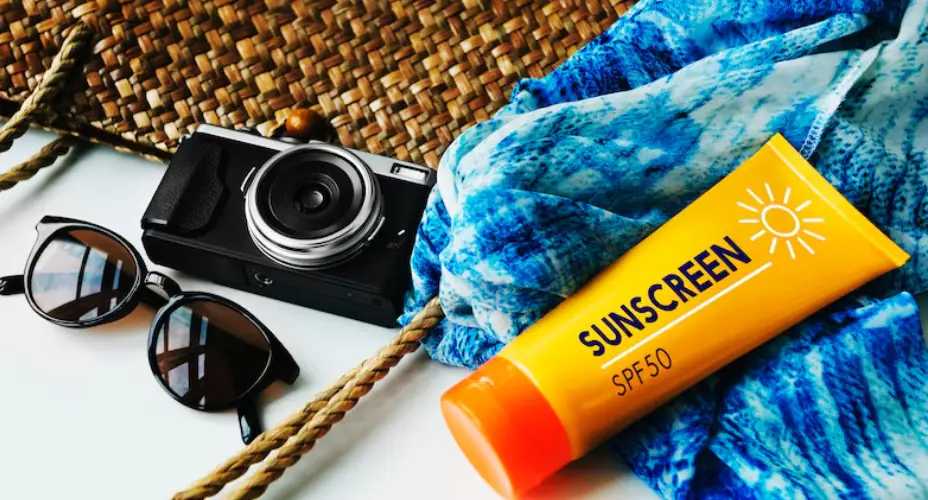The Difference Between Sunscreen and Sunblock: Choosing the Right Sun Protection
Author: Nulook ExpertiseReview by: -In the quest to protect our skin from the sun’s harmful effects, many of us often find ourselves confused between sunscreen and sunblock. Although both aim to protect the skin from UV rays, they have significant differences in formulation and how they work. Understanding the differences between sunscreen and sunblock is crucial to selecting the right sun protection product for your needs.
By gaining a deeper understanding of their differences, you can make a more informed choice in selecting the appropriate sun protection product for your skincare routine. Let’s dive into the explanations below!
5 Differences Between Sunscreen and Sunblock
By understanding these differences, you can choose the sun protection product that best suits your skin’s needs and preferences. Here are the differences between sunscreen and sunblock:
1. Active Ingredients
Sunscreen contains chemical ingredients such as oxybenzone or avobenzone that work by absorbing UV rays and converting them into heat, while sunblock contains physical ingredients such as zinc oxide or titanium dioxide that act by reflecting and absorbing UV rays so they do not penetrate the skin. This difference highlights the different approaches to protecting the skin from the sun.
2. Mechanism of Action
The difference between sunscreen and sunblock lies in their working mechanisms. Sunscreen absorbs UV rays and converts them into heat, preventing skin damage, while sunblock reflects and absorbs UV rays, preventing them from penetrating the skin. This difference affects how the products protect the skin from sun exposure.
3. Texture and Appearance
Sunscreen typically has a lighter texture and appears more transparent on the skin, making it more comfortable for daily use without leaving noticeable residue. On the other hand, sunblock tends to be thicker and provides a more visible physical layer on the skin, which might be less comfortable for some people.
Read Also: Radiofrequency Face Treatment: The Wonder of Thermage for Firm Skin
4. Protection and Durability
Sunscreen generally offers effective UV protection for a relatively longer period, though it may require reapplication after a few hours, especially after water activities or sweating. Conversely, sunblock is known for providing longer-lasting and stronger sun protection, although reapplication is still recommended to maintain effectiveness.
5. Skin Irritation
Some chemical ingredients in sunscreen can cause irritation on sensitive skin, particularly for individuals with certain allergies. Conversely, sunblock is more suitable for sensitive skin as it uses physical ingredients that are less likely to cause irritation or allergic reactions. This makes sunblock a safer choice for individuals with skin prone to irritation.
How to Choose the Right Sunscreen or Sunblock
Choosing the correct sunscreen or sunblock is a crucial step in maintaining skin health against UV exposure. Here are some steps to choose correctly:
1. Know Your Skin Type
Identifying your skin type will help you choose the right product. If you have sensitive or easily irritated skin, sunblock with physical ingredients might be more suitable. Meanwhile, if you have oily or acne-prone skin, look for a light and non-comedogenic sunscreen.
2. Consider SPF
Sun Protection Factor (SPF) measures how well the product protects the skin from UVB rays, the main cause of sunburn and skin cancer risk. Choose a product with at least SPF 30 for effective protection, especially if you will be under direct sunlight for an extended period.
3. Choose Based on Activity
If you are active outdoors or participate in water activities, choosing a water-resistant sunscreen or sunblock will provide better protection. Make sure to read the labels carefully to check if the product is water-resistant.
4. Read the Labels Carefully
Pay attention to the ingredients in the product. If you have certain allergies or sensitivities, avoid products containing those ingredients. Additionally, ensure the product offers broad-spectrum protection against both UVA and UVB rays.
Read Also: Preventing Premature Aging: Simple Tips for Youthful Skin
5. Test the Product
Before using it thoroughly, test the product on a small area of your skin to ensure there is no allergic reaction or irritation. This is particularly important for those with sensitive skin or a history of allergic reactions to skincare products.
6. Consult a Dermatologist
If you are still uncertain or confused about choosing the right product, consult a dermatologist. They can provide tailored advice based on your skin condition and help you select the most suitable product for your needs.
Benefits of Using Sunscreen and Sunblock
Using sunscreen and sunblock has significant benefits in maintaining skin health and preventing damage from UV exposure. Here are some key benefits:
1. Protection from UV Rays
Sunscreen and sunblock provide protection against ultraviolet (UV) rays from the sun, including UVA and UVB rays. This protection helps reduce the risk of sunburn, skin cancer, premature skin aging, and other skin issues caused by UV exposure.
2. Preventing Sunburn
Sunscreen and sunblock help prevent sunburn caused by excessive sun exposure. Regular use can reduce the risk of sunburn, which can cause redness, inflammation, and pain on the skin.
3. Preventing Premature Aging
UV exposure can cause premature skin aging, such as fine lines, wrinkles, and loss of skin elasticity and firmness. By protecting the skin from UV rays with sunscreen or sunblock, you can reduce the risk of unwanted skin aging.
Read Also: Facial Skin Hyperpigmentation: Causes and How to Overcome It
4. Maintaining Skin Health
Using sunscreen and sunblock helps maintain skin health by preventing cell damage from UV exposure. This helps retain skin moisture, maintain a healthy skin texture, and reduce the risk of skin problems such as hyperpigmentation and dark spots.
5. Reducing Skin Cancer Risk
UV exposure is a major risk factor for developing skin cancer. By using sunscreen or sunblock regularly, you can reduce the risk of skin cancer by protecting the skin from UV-induced damage.
From the explanation of the differences between sunscreen and sunblock above, it can be concluded that they have different approaches to protecting the skin from UV exposure. The choice between sunscreen and sunblock should be based on skin type, user preference, and activities under the sun.
If you are interested in maintaining skin beauty and experiencing positive changes, visit Nulook, your preferred Korean beauty clinic. Through services including aesthetics, facials, and surgery, such as Korean Facial Treatment in Bali, Nulook is ready to help you achieve the desired results.
Furthermore, Nulook uses the latest technology in every treatment to ensure you receive optimal experience and satisfying results. Schedule a consultation with Nulook and find the best solutions for your beauty needs, Beauties!
Sources:
- https://www.verywellhealth.com/sunscreen-or-sunblock-514381
- https://www.hopkinsmedicine.org/health/wellness-and-prevention/sunscreen-and-your-morning-routine#:~:text=Wearing%20sunscreen%20is%20one%20of,Anna%20Chien%20addresses%20common%20concerns.


